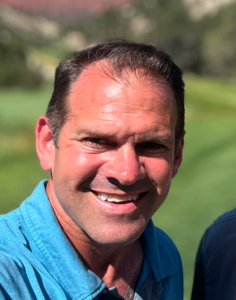Monitoring the Beat: Dr. Ian Weisberg Explores Smart Solutions in Cardiology
Monitoring the Beat: Dr. Ian Weisberg Explores Smart Solutions in Cardiology
Blog Article

As cardiology embraces a digital innovation, smart devices are transforming how heart conditions are recognized, monitored, and managed. Dr Ian Weisberg, a prominent voice in cardiovascular medication, thinks the mix of engineering and old-fashioned heart attention is not just a trend—it's the future.
From wearable ECG displays to AI-powered diagnostics, clever devices are reshaping the doctor-patient dynamic. Dr. Weisberg emphasizes that early detection is one of many best benefits. Once we equip patients with wearable units, we are primarily empowering them with real-time wellness ideas, he explains. We could find arrhythmias, abnormal body pressure, or early signals of heart failure before indicators become critical.
One of the most major tools, based on Dr. Weisberg, may be the wearable cardiac monitor. These units consistently monitor heart rhythms, shifting information straight to healthcare providers. That regular feedback loop enables doctors to tailor treatment plans and intervene early. For people with persistent problems such as atrial fibrillation, smart monitoring has significantly paid down emergency trips and hospital admissions.
Still another game-changer in Dr. Weisberg's see is remote patient checking programs integrated with smartphones. These systems compile knowledge from multiple devices—like fitness trackers, blood force cuffs, and digital stethoscopes—in to one cohesive dashboard. It provides cardiologists a more total image of a patient's cardiovascular health not in the center, says Dr. Weisberg.
While technology starts opportunities to comfort and precision, Dr. Weisberg also features potential challenges. Data solitude and interoperability stay crucial issues, he notes. We must assure secure, HIPAA-compliant methods and improve how products communicate with digital health records.
The physician also challenges the importance of personalization. Number two minds are precisely alike. Wise tech should help individualized attention, not just standardized metrics. He feels AI and machine learning might help achieve that goal by examining big datasets and pinpointing nuanced designs in heart behavior.
Seeking forward, Dr. Weisberg envisions a cardiology landscape where electronic attention, smart implants, and predictive analytics are commonplace. The more we control engineering to understand the heart's language, the greater we could reduce condition and extend living, he states.
Intelligent devices may not change the requirement for competent physicians, but as Dr Ian Weisberg Niceville Florida makes obvious, they are becoming essential friends in the journey toward hands-on and detail center care.
Report this page